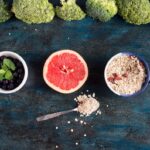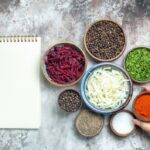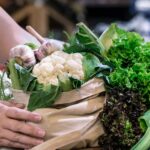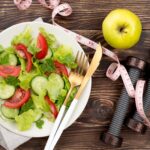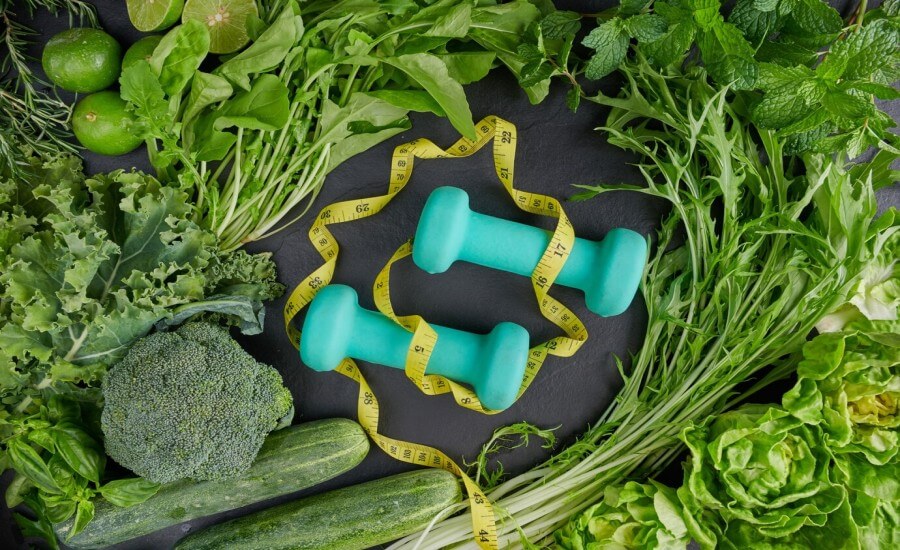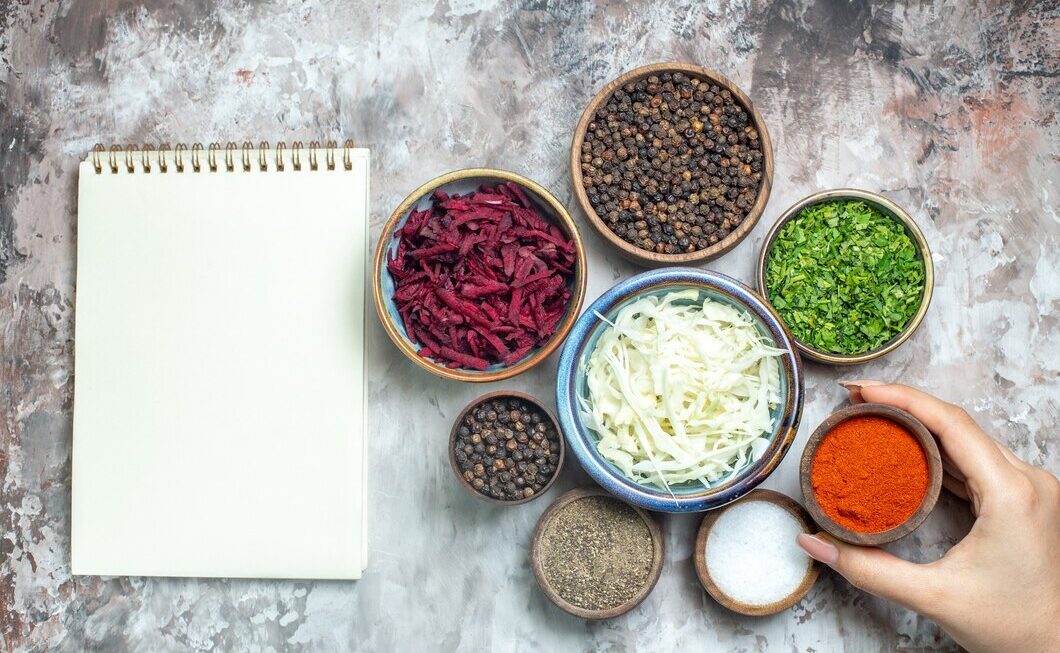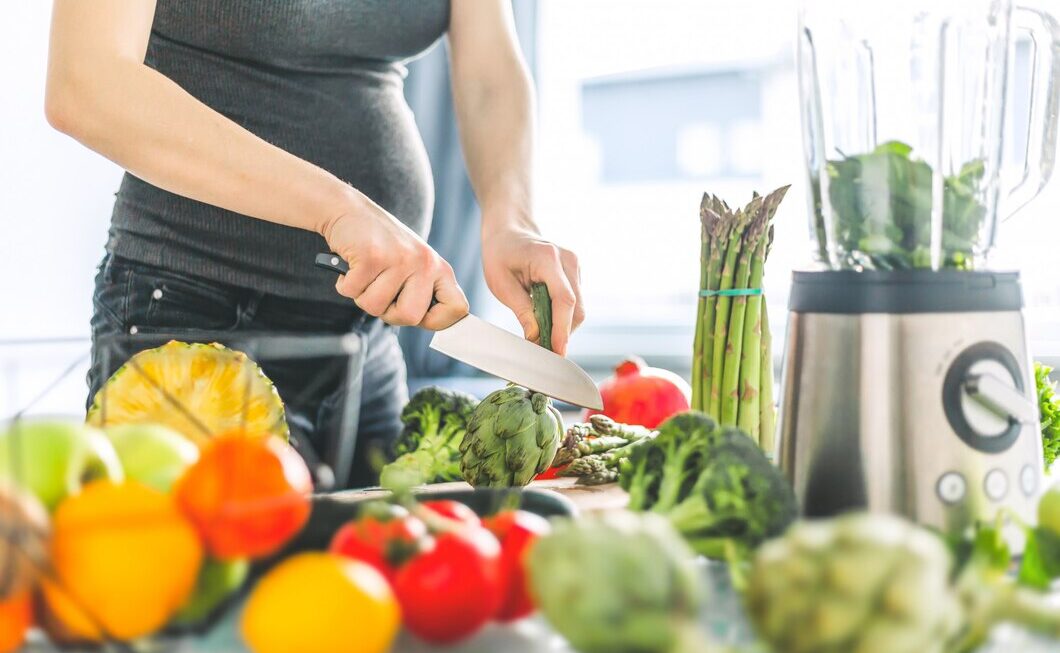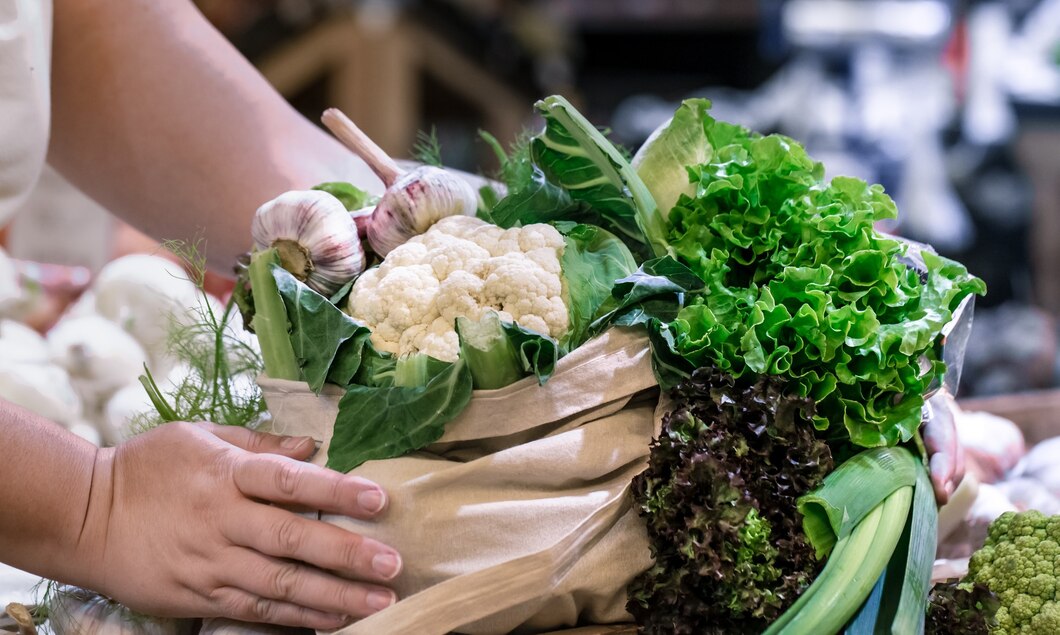For decades, the prevailing wisdom in sports nutrition dictated that meat and dairy were essential building blocks for athletic prowess. The image of the strong, high-performing athlete was almost synonymous with animal protein. But a powerful shift is underway. Globally, and increasingly here in India, elite athletes across diverse disciplines – from endurance runners to strength athletes and team players – are challenging this paradigm, embracing plant-based diets not just for ethics or environment, but for peak performance. This analysis delves into how a well-strategized vegan diet can fuel strength, speed, and stamina. We’ll examine the Nutritional science, Practical application, Cultural shifts, and Ethical/Environmental underpinnings of plant-powered athletics, proving that unleashing your inner athlete on plants is not only possible but potentially advantageous. Best Plant Based Diet for Athletes Performance Guide: Fuel your training with clean, powerful, plant-based nutrition for peak results.
Plant-based Diets To Athletic Performance and Health
LENS 1: Nutritional Science – Fueling the Engine for Peak Output
- Key Findings: Well-planned plant-based diets can meet and even exceed the demanding nutritional requirements of athletes. They offer abundant complex carbohydrates for sustained energy, ample high-quality protein for muscle repair and synthesis, healthy fats, and a rich supply of micronutrients and antioxidants crucial for recovery, immune function, and reducing exercise-induced oxidative stress. Careful attention to specific nutrients like B12, iron, zinc, calcium, vitamin D, iodine and omega-3s is necessary.
- Detailed Analysis:
- Energy Needs: Athletes have high energy demands. While plant foods can be voluminous, achieving sufficient calorie intake is crucial and requires focusing on energy-dense options like nuts, seeds, avocados, dried fruits, whole grains, legumes, and healthy oils alongside abundant fruits and vegetables.
- Carbohydrates: The Primary Fuel: Plant-based diets excel here. Whole grains (like roti from whole wheat/bajra/jowar, brown rice, quinoa, oats), fruits, vegetables, and legumes provide ample complex carbohydrates, essential for replenishing muscle glycogen stores – the primary fuel for moderate to high-intensity exercise, crucial for both endurance and repeated high-intensity efforts in sports like cricket or football. Endurance athletes may need 6-12 grams of carbs per kg body weight daily.
- Protein: Building & Repairing Muscle: A major myth is that vegan diets lack sufficient protein for athletes. Requirements are elevated (1.2-2.0 g/kg body weight). This is readily achievable through diverse plant sources like lentils (dal), chickpeas (chana), beans (rajma), tofu, tempeh, seitan, edamame, nuts, seeds (pumpkin, hemp), quinoa, and even grains. While individual plant proteins might be lower in certain essential amino acids (EAAs) compared to animal proteins, consuming a variety throughout the day ensures a complete EAA profile. Some research suggests slightly higher plant protein intake might compensate for digestibility differences. Timing protein intake around workouts (within ~2 hours post-exercise) aids recovery.
- Healthy Fats: Essential for hormone production and overall health (20-35% of energy). Plant sources like avocados, nuts (walnuts, almonds), seeds (chia, flax, hemp), and olives/olive oil provide beneficial unsaturated fats.
- Micronutrients & Recovery Boosters:
- Antioxidants & Phytochemicals: Abundant in fruits, vegetables, and spices. These combat oxidative stress generated during intense exercise and possess anti-inflammatory properties, potentially aiding faster recovery and reducing muscle soreness.
- Iron: Crucial for oxygen transport via hemoglobin. Vegan athletes, especially females, need vigilance due to relying on less bioavailable non-heme iron. Needs may be ~1.8x higher. Strategies include pairing iron sources (lentils, tofu, greens) with Vitamin C (lemon, amla, tomato) and avoiding tea/coffee with meals.
- Zinc: Important for immune function and repair. Plant sources (beans, nuts, seeds, oats) exist, but bioavailability is reduced by phytates. Needs might be ~50% higher for vegans. Soaking/sprouting helps.
- Calcium & Vitamin D: Essential for bone health, particularly vital in high-impact sports. Fortified plant milks/yogurts, tofu set with calcium, leafy greens (kale, bok choy), sesame seeds (til), and ragi are calcium sources. Vitamin D often requires sun exposure monitoring and likely supplementation in most athletes, regardless of diet.
- Vitamin B12: Must be obtained reliably from fortified foods or supplements, as it’s not naturally present in plant foods. Crucial for energy metabolism and nerve function.
- Iodine: Needs can be met via iodized salt or seaweed (in moderation).
- Omega-3 (EPA/DHA): Important for inflammation modulation. ALA from flax/chia/walnuts has poor conversion. Algal oil supplements provide direct EPA/DHA.
- Antioxidants & Phytochemicals: Abundant in fruits, vegetables, and spices. These combat oxidative stress generated during intense exercise and possess anti-inflammatory properties, potentially aiding faster recovery and reducing muscle soreness.
- Energy Needs: Athletes have high energy demands. While plant foods can be voluminous, achieving sufficient calorie intake is crucial and requires focusing on energy-dense options like nuts, seeds, avocados, dried fruits, whole grains, legumes, and healthy oils alongside abundant fruits and vegetables.
- Nutritional Deep Dive 1: Plant Protein Powerhouse: Meeting Muscle Demands
- The key isn’t just amount but quality (amino acid profile) and timing. While some plant proteins are lower in specific EAAs like leucine (a trigger for muscle protein synthesis – MPS), combining sources (e.g., dal with rice/roti) provides a full complement. Studies comparing plant vs. animal protein often show similar long-term muscle gains when total protein and calories are matched. Consuming ~20-30g of protein per meal/snack, including post-workout, optimizes MPS. Vegan protein powders (pea, soy, rice, blends – a growing market in India) can conveniently supplement intake.
- The key isn’t just amount but quality (amino acid profile) and timing. While some plant proteins are lower in specific EAAs like leucine (a trigger for muscle protein synthesis – MPS), combining sources (e.g., dal with rice/roti) provides a full complement. Studies comparing plant vs. animal protein often show similar long-term muscle gains when total protein and calories are matched. Consuming ~20-30g of protein per meal/snack, including post-workout, optimizes MPS. Vegan protein powders (pea, soy, rice, blends – a growing market in India) can conveniently supplement intake.
- Nutritional Deep Dive 2: Carb-Loading, Plant-Style: Fueling Endurance & Glycogen
- Plant-based diets make carbohydrate loading for endurance events relatively easy. Focus on easily digestible complex carbs in the days leading up: whole wheat pasta, brown rice, oats, potatoes, sweet potatoes, bananas. During prolonged exercise (>60-90 min), consuming 30-60g (or even up to 90g for ultra-events) of easily digestible carbs per hour (gels, sports drinks, dates, bananas) maintains blood glucose and spares glycogen.
- Plant-based diets make carbohydrate loading for endurance events relatively easy. Focus on easily digestible complex carbs in the days leading up: whole wheat pasta, brown rice, oats, potatoes, sweet potatoes, bananas. During prolonged exercise (>60-90 min), consuming 30-60g (or even up to 90g for ultra-events) of easily digestible carbs per hour (gels, sports drinks, dates, bananas) maintains blood glucose and spares glycogen.
- Voice of Experience (Sports Dietitian, India): “More Indian athletes are exploring plant-based diets, driven by health, ethics, or performance gains. My role is to ensure they plan meticulously. We focus on sufficient calories, diverse plant protein sources timed correctly, maximizing iron absorption with Vitamin C, reliable B12 supplementation, and adequate carbs from traditional sources like millets and whole grains. It’s entirely possible to excel athletically on a well-managed plant-based diet.” – Anjali Mehta, Sports Nutritionist.
- Scientific Evidence Diagram:
- Critical Reassessment: The main challenges for vegan athletes are often logistical and require discipline: consistently consuming enough calories (due to fiber/bulk), planning meals carefully to ensure all micronutrient needs are met (requiring knowledge or professional guidance), and potentially relying on supplements for certain nutrients (B12, Vit D, Omega-3, possibly Iron/Zinc/Creatine).
LENS 2: Ethical Framework – Performance with Principles (Brief)
- Analysis: For many athletes, adopting a vegan diet stems from a desire to align their actions with their values regarding animal welfare or reducing environmental impact. Discovering that they can maintain or even enhance their performance on this diet becomes incredibly empowering, proving that peak physical achievement doesn’t necessitate compromising ethical principles. This alignment can contribute positively to mental well-being and motivation.
LENS 3: Environmental Science – Sustainable Strength (Brief)
- Analysis: The foods that power plant-based athletes – legumes, grains, fruits, vegetables – inherently require fewer natural resources (land, water) and produce significantly lower greenhouse gas emissions compared to animal-derived proteins and calories. Choosing plant-based fuel allows athletes to pursue their performance goals while minimizing their environmental footprint, a factor of growing importance in the sports world.
LENS 4: Everyday Practitioner’s Experience – Training, Fueling, Thriving
- Analysis: The daily life of a plant-based athlete involves conscious fueling strategies. This includes planning meals around training schedules, ensuring adequate pre-workout energy (e.g., banana with peanut butter, oats), optimizing post-workout recovery (e.g., a protein-carb rich smoothie with vegan protein powder, berries, and banana; or a substantial meal like tofu bhurji with roti or dal-rice with extra veggies), and managing energy density (using nuts, seeds, avocados). Many report experiencing faster recovery, less muscle soreness, and more consistent energy levels. Travel and eating out require more planning but are manageable with experience.
- Daily Impact: Athletes often report feeling ‘lighter’, having better digestion, sustained energy throughout demanding training schedules, and potentially quicker recovery between sessions, allowing for more consistent training.
- Voice of Experience (Indian Plant-Based Athlete): “Switching to a plant-based diet was initially for health, but my cricket performance actually improved. My recovery between matches feels faster, and I have more stamina during long innings. I focus on getting enough dal, tofu, brown rice, and lots of fruits and vegetables. Planning meals is key, especially when traveling, but the energy benefits are worth it. Plus, knowing I’m not contributing to animal harm feels good.” – (Hypothetical Quote based on cited athletes like Chhetri/bodybuilders) Ajay Verma, Cricketer.
LENS 5: Cultural Observer’s Perspective – Shifting Norms in Sport
- Analysis: Historically, particularly in strength-focused sports, vegetarianism/veganism faced skepticism. However, high-profile global successes (Novak Djokovic, Lewis Hamilton, Venus Williams) and prominent Indian figures embracing plant-forward diets (Sunil Chhetri confirmed vegan, Virat Kohli vegetarian, numerous others reported) are rapidly changing perceptions. The documentary “The Game Changers” significantly impacted public and athlete awareness. In India, with its strong vegetarian roots, adapting to performance-focused plant-based eating involves optimizing traditional meals (ensuring sufficient protein, strategic carbs) and potentially incorporating modern sports nutrition products. The market for vegan protein powders and supplements is booming in India, reflecting this cultural shift within fitness and sports communities.
- Market Transformation: Significant growth in Indian brands offering pea, soy, rice, and blended vegan protein powders, catering specifically to the fitness and athlete market.
PERSPECTIVE INTERSECTION MATRIX
- Science & Practice: Nutritional science (Lens 1) dictates the ‘what’ and ‘why’ of fueling, while practical experience (Lens 4) implements the ‘how’ through meal planning and timing.
- Culture & Performance: Changing cultural perceptions (Lens 5) influenced by role models make it socially easier for athletes to adopt plant-based diets (Lens 4), while science confirms performance feasibility (Lens 1).
- Ethics & Performance: Ethical motivations (Lens 2) drive the dietary choice, which scientific evidence and practical experience show can support or enhance performance (Lens 1, Lens 4).
- Nutrition & Recovery: The anti-inflammatory potential identified by science (Lens 1) translates into potentially faster recovery experienced by practitioners (Lens 4).
MISCONCEPTION ANALYSIS (About Vegan Athletes)
| Misconception | Reality (Drawing from Lenses – India 2025 Context) |
| “Vegans can’t build muscle or be strong.” | FALSE. Muscle growth depends on sufficient calories, adequate protein (achievable via diverse plants), and resistance training stimulus. Many successful vegan strength athletes exist. (Lens 1, Lens 5) |
| “Plant-based diets don’t provide enough energy.” | FALSE. They are typically rich in complex carbohydrates, the body’s preferred fuel for sustained energy and endurance. Calorie density requires attention. (Lens 1, Lens 4) |
| “Meat/Dairy are essential for recovery.” | FALSE. Plant-based diets provide protein for muscle repair and are rich in anti-inflammatory compounds that may enhance recovery. (Lens 1, Lens 3, Lens 4) |
| “Vegan diets are too complicated for athletes.” | Requires Planning, Not Impossible. Meeting heightened needs requires knowledge and planning (like any athlete’s diet), potentially with professional help, but is entirely feasible. (Lens 1, Lens 4) |
| “You need specific ‘superfoods’ to succeed.” | FALSE. Success comes from a well-balanced diet meeting macro/micronutrient needs using accessible whole foods like dals, grains, vegetables, fruits, nuts/seeds common in India. (Lens 1, Lens 5) |
KEY TURNING POINTS (Veganism in Athletics)
- Pioneering Vegetarian/Vegan Endurance Athletes: Early examples demonstrating success in running/triathlons.
- Rise of Vegan Bodybuilding: Directly challenging the myth that meat is necessary for muscle mass.
- High-Profile Athletes Go Plant-Based (2010s onwards): Mainstream stars across tennis, F1, NFL, etc., adopting the diet and speaking about performance benefits.
- “The Game Changers” Documentary (2018/2019): Massively popularized the concept linking plant-based diets to athletic performance and health.
- Advancements in Vegan Sports Nutrition: Increased availability and quality of plant-based protein powders, supplements, and convenience foods tailored for athletes.
CONVERGENT REFLECTIONS: Fueling Potential, Redefining Strength
The narrative that peak athletic performance demands animal products is demonstrably outdated. A well-planned plant-based diet offers a powerful, effective, and potentially advantageous way to fuel athletes across all disciplines – providing sustained energy through complex carbohydrates, ample protein for muscle synthesis and repair, healthy fats, and a wealth of micronutrients and anti-inflammatory compounds that support recovery and overall health.
While meticulous planning is required to meet heightened energy and specific micronutrient needs (especially B12, Iron, Zinc, Omega-3s), the success of countless athletes globally and increasingly in India validates this approach. For the modern athlete, choosing plant-based fuel is not a compromise; it’s a strategic choice that can align performance goals with personal health, ethical values, and environmental responsibility, truly unleashing their full potential.
FURTHER AREAS OF EXPLORATION
- Sample Vegan Meal Plans for Indian Athletes (Cricket, Running, Strength Training).
- Deep Dive: Plant-Based Strategies for Optimizing Iron Status in Female Athletes in India.
- The Role of Traditional Indian Foods (Sattu, Millets, Dals) in Modern Vegan Sports Nutrition.
- Choosing the Right Vegan Protein Supplement in the Indian Market.
- Hydration and Electrolyte Strategies for Vegan Athletes.
- Mental Performance and the Plant-Based Athlete: Exploring the Gut-Brain Connection.
- Case Studies: Training and Diet Logs of Successful Indian Plant-Based Athletes.
FAQ: Plant-Based Diets for Athletes
Q1: Is a plant-based diet good for athletes?
A: Yes, a well-planned plant-based diet can be very good for athletes and can support peak performance. Many successful athletes across various sports thrive on plant-based diets.
- Potential Benefits:
- Rich in Carbohydrates: Plant-based diets are naturally high in complex carbohydrates (from whole grains, fruits, vegetables, legumes), which are the primary fuel source for exercise.
- High in Antioxidants & Phytonutrients: These compounds, abundant in plant foods, can help reduce inflammation and support recovery.
- Good Source of Fiber: Aids in digestion and can help with satiety.
- Often Lower in Saturated Fat: Which can be beneficial for cardiovascular health.
- Key Considerations: Like any diet for athletes, it needs to be well-planned to ensure adequate intake of:
- Calories: To meet high energy demands.
- Macronutrients: Sufficient protein, carbohydrates, and healthy fats.
- Micronutrients: Paying attention to nutrients like vitamin B12, vitamin D, iron, zinc, calcium, and omega-3 fatty acids (EPA/DHA), which might require careful food choices or supplementation.
Q2: What is the best diet for an athlete?
A: There is no single “best” diet that fits every athlete. The optimal diet for an athlete depends on several individual factors, including:
- Type of Sport: Endurance, strength, power, or mixed sports have different energy and macronutrient demands.
- Training Intensity & Volume: Higher intensity and volume require more calories and specific nutrient timing.
- Individual Goals: Muscle gain, fat loss, performance enhancement, or maintenance.
- Personal Preferences & Tolerances: What an athlete enjoys eating and can digest well.
- Genetics & Metabolism: Individual variations can influence how bodies respond to certain foods.
However, the principles of a good athletic diet are generally consistent:
- Sufficient Energy (Calories): To fuel training and recovery.
- Adequate Macronutrients:
- Carbohydrates: The primary fuel source.
- Protein: For muscle repair, growth, and recovery.
- Fats: For hormone production, energy, and absorption of fat-soluble vitamins.
- Rich in Micronutrients: Vitamins and minerals from a variety of whole foods.
- Proper Hydration: Essential for all bodily functions and performance.
- Nutrient Timing: Consuming the right nutrients at the right times around training can optimize performance and recovery.
A well-planned plant-based diet can meet all these principles, just as a well-planned omnivorous diet can. The “best” diet is one that is sustainable, enjoyable, meets all nutrient needs, and supports the athlete’s specific goals.
Q3: How do vegan athletes get enough protein?
A: Vegan athletes can easily get enough protein by including a variety of plant-based protein sources in their diet. The concern about protein deficiency on a vegan diet is largely a myth, provided the diet is diverse and includes protein-rich foods.
- Excellent Plant-Based Protein Sources:
- Legumes: Lentils, chickpeas, black beans, kidney beans, pinto beans, edamame.
- Soy Products: Tofu, tempeh, soy milk, edamame.
- Seitan: Made from wheat gluten, very high in protein.
- Nuts and Seeds: Almonds, walnuts, peanuts (and their butters), pumpkin seeds, chia seeds, hemp seeds, flaxseeds.
- Whole Grains: Quinoa, oats, amaranth, spelt, brown rice, whole wheat bread/pasta (while not primary protein sources, they contribute).
- Some Vegetables: Spinach, broccoli, peas, potatoes contribute smaller amounts.
- Vegan Protein Powders: Derived from pea, soy, rice, hemp, or blends, can be used to supplement intake if needed, especially around workouts.
Athletes generally have higher protein needs than sedentary individuals. Vegan athletes should aim for a variety of these sources throughout the day to ensure they get a complete range of amino acids and meet their protein targets.
Q4: What do vegan athletes eat?
A: Vegan athletes eat a wide variety of delicious and nutritious foods to fuel their training and recovery. Their meals focus on whole, unprocessed plant foods.
Here are some examples:
- Breakfast:
- Oatmeal with berries, nuts, seeds, and soy milk.
- Tofu scramble with vegetables and whole-wheat toast.
- Smoothies with fruit, spinach, plant-based protein powder, and almond milk.
- Whole-grain pancakes or waffles with fruit and maple syrup.
- Lunch:
- Large salads with chickpeas or lentils, mixed greens, vegetables, and a tahini dressing.
- Lentil soup with whole-grain bread.
- Bean burritos or bowls with rice, beans, salsa, avocado, and vegetables.
- Tofu or tempeh sandwiches on whole-grain bread with hummus and veggies.
- Dinner:
- Stir-fries with tofu or seitan, lots of vegetables, and brown rice or quinoa.
- Pasta with lentil bolognese or a creamy cashew-based sauce and vegetables.
- Curries with chickpeas, potatoes, spinach, and coconut milk, served with rice.
- Veggie burgers on whole-grain buns with sweet potato fries.
- Baked potatoes topped with chili beans and vegan cheese.
- Snacks:
- Fruits (apples, bananas, berries, oranges).
- Nuts and seeds (almonds, walnuts, pumpkin seeds).
- Edamame (steamed or roasted).
- Hummus with vegetable sticks or whole-grain crackers.
- Rice cakes with peanut butter.
- Vegan protein bars or shakes.
- Roasted chickpeas.
